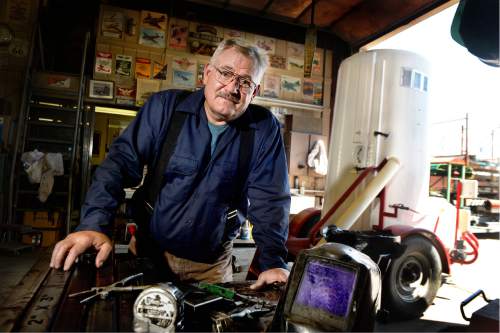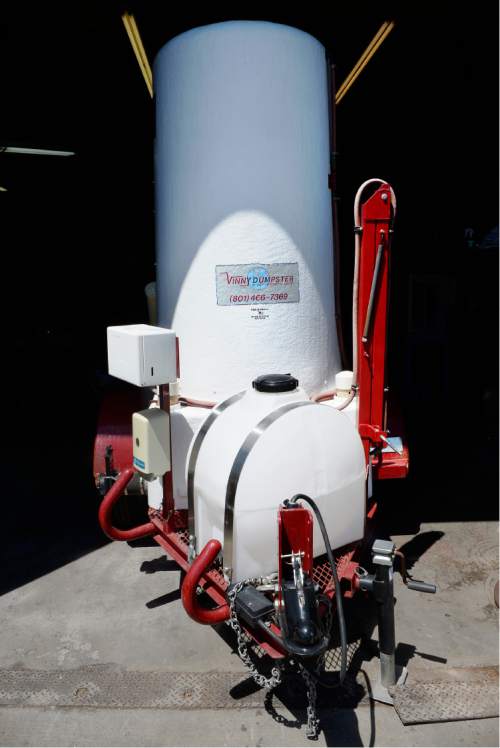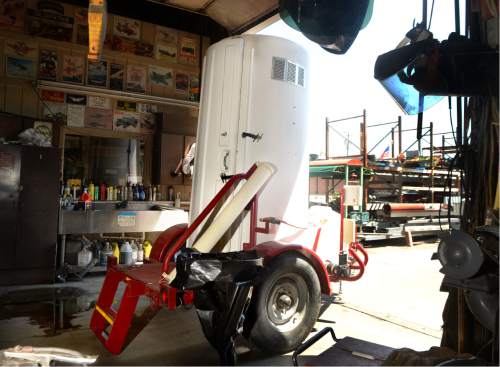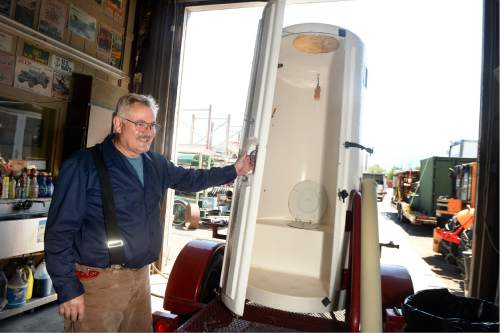This is an archived article that was published on sltrib.com in 2016, and information in the article may be outdated. It is provided only for personal research purposes and may not be reprinted.
Vincent and Linda Julian may have the answer to Salt Lake City's rolling-potties conundrum.
For years, these manufacturers, who own and operate Earth Environmental Services in South Salt Lake, have built what they call "tactical toilets" that are mounted on trailers.
The Salt Lake City Council has proposed funding a pilot project that would deploy such mobile potties around the Pioneer Park area, where human waste on public and private properties is a continual problem.
The challenge, of course, is funding. For the upcoming fiscal year, which begins July 1, the council has proposed spending $200,000 for a mobile-toilet program that would include an attendant to ensure each unit is used as intended. Council members will seek $75,000 in matching money from private entities.
Councilwoman Erin Mendenhall, one of two council members who did not support the funding, asked her colleagues how the potty pilot's effectiveness would be measured. "Do we have a baseline for success?" she inquired.
But Councilwoman Lisa Adams — who jokingly labeled herself "Lisa the Latrine Queen" — championed the pilot as a necessity for those in need of a restroom, as well as Pioneer Park-area businesses and residents.
The Julians' tactical toilets have been dispatched to Haiti and the Middle East. They are used domestically by the National Guard, the Federal Emergency Management Agency and the Red Cross. Units built as early as 1991 for the military are still in service, according to Vincent — who goes by Vinny.
"We've been making these for a long time," he said. "We listen to what people want, and then we build something that is indestructible."
Julian says his SHOWs — an acronym for sh—house on wheels — start at about $5,000 for a single potty. With trailer, it weighs in at 880 pounds and cleans up as easily as an RV, he said, because it is fiberglass and has a built-in flushing system. And — a bonus — each one comes with a skylight.
A trailer and double potty costs about $14,000, depending on options.
Julian suggests two one-holers, rather than one two-holer. "It saves money," he said, "and provides more options."
Some City Council members recently visited San Francisco and witnessed its mobile-potty program, called Pit Stop. The Bay Area city budgets $136,000 annually for each two-potty trailer that operates from 2 p.m. to 9 p.m. daily with an attendant.
But Salt Lake City Councilman Charlie Luke said the bulk of cost for the San Francisco program is attendant wages. That city has a minimum wage of $15 per hour. But the Clean Team in Salt Lake City is made up of homeless and formerly homeless people working for the private contractor Advantage Services. Luke said it could provide the service for much less.
The Julians have sold more than 500 SHOWs and take pride in their products.
"We're not a big, flashy company," Julian said. "I'm old-fashioned and Linda's old-fashioned. We like to build things and build them well."
No contract has been let. But Julian hopes that once council members see his tactical toilets, they'll feel relieved.









